Covid hangover soars to $850bn after budget deficit blowout of $280bn
The pandemic will saddle the nation with a $850bn gross debt bill and a combined budget blowout of almost $280bn by mid-next year.
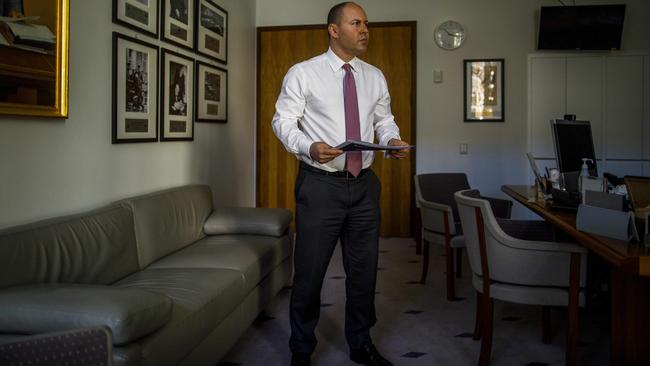
Australia’s response to the COVID-19 crisis will saddle the nation with a record $850bn gross debt bill and a combined budget blowout of almost $280bn by mid-next year, on the back of the government’s unprecedented response to firewall the economy and save millions of jobs.
The Australian can reveal that today’s pre-budget economic statement will reveal a budget deficit of just under $90bn for 2019-20, eclipsing last year’s pre-pandemic hopes of a $5bn return to surplus.
That will more than double for the current year to June 2021 to almost $190bn following record falls in revenue and investment and the $289bn the government has so far committed to fiscal stimulus.
However, in positive signs for economic recovery, GDP is poised to defy the Reserve Bank’s original dire predictions and come in under the 5 per cent forecast collapse in the 2020 calendar year.
The major economic statement to be released by Josh Frydenberg and Mathias Cormann reveals a $25bn hit to company tax receipts over the current and last financial years, reflecting a significant reduction from the $93.7bn collected in 2018-19.
The budget update forecasts the largest deficit as a percentage of GDP since World War II, surging on increased payments responding to the COVID-19 pandemic and devastating summer bushfires. The Treasurer on Wednesday described the budget figures and the predicted deficit as “eye-watering”.
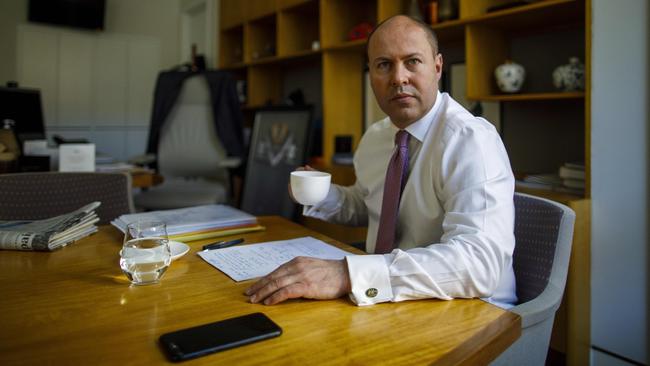
Business investment will fall by 6 per cent in 2019-20 and 12.5 per cent in 2020-21. The resources sector has emerged as the nation’s economic shining light, with mining investment increasing for the first time in seven years, growing by 4 per cent and 9.5 per cent across the same period.
Mr Frydenberg will declare that the budget’s structural integrity has been maintained, with more than 99 per cent of the government’s $289bn COVID-19 economic response being spent through to the end of 2020-21.
Treasury predicts the government’s $164bn spending on direct fiscal measures has lowered the peak of the measured unemployment rate by about five percentage points, which they expect will prevent the loss of about 700,000 jobs.
The budget update will reveal Victoria’s coronavirus lockdown is forecast to slash $3.3bn from national real GDP growth, shaving three-quarters of a percentage point from Australia’s economic output in the September quarter.
Mr Frydenberg earlier this month warned that a return to full lockdown measures in Victoria could have an economic impact of about $1bn a week.
The Treasurer, who last December forecast a $5bn surplus for 2019-20, said Peter Costello’s prediction that the next generations of Australians would be paying off the record debt was “absolutely” correct.
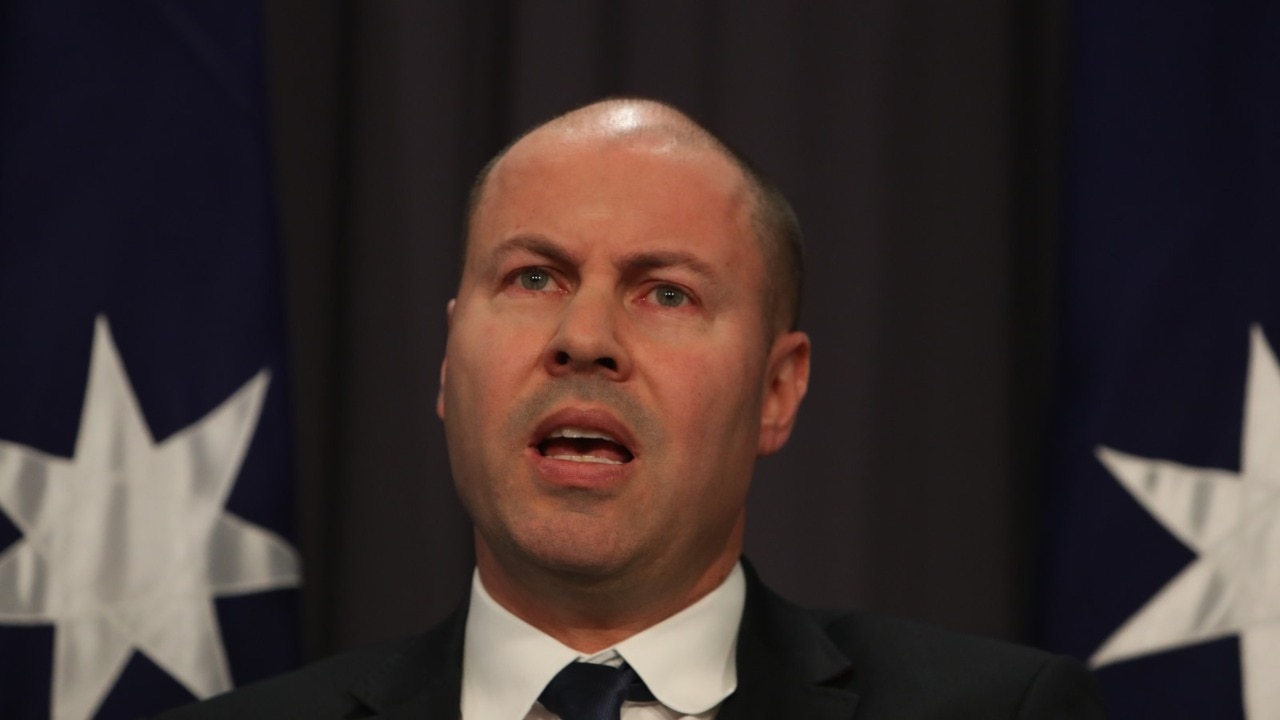
“Ultimately, the high debt burden needs to be met by the government,” Mr Frydenberg said. “What we want to do is not see any reduction in the services, or increases in the taxes, that’s not our track record.”
He said the government’s COVID-19 support measures combined with significant reductions in tax receipts had severely damaged the budget bottom line.
“The COVID-19 pandemic is a once-in-a-century shock that is placing immense pressure on health systems and economies all around the world,” he said.
“Australia has outperformed nearly every other country in both health and economic outcomes through this crisis. The progress on the health front will shape the speed and trajectory for the recovery in Australia.
“We carefully designed our economic support measures to ensure we maintained the structural integrity of the budget.”
Scott Morrison said the COVID-19 economic shock was the most expensive crisis the nation had managed.
Ahead of the October 6 budget, the Prime Minister said Australians should not expect new announcements in the economic update and described the forecasts as “reconciling the books for last year and this year”. “It’s to be transparent with people about what the cost is … this has been the single largest economic impact that the government has had to face since the Second World War,” Mr Morrison told 2GB.
Senator Cormann said the economic outlook remained “highly uncertain” as the pandemic continued to spread across Australia and the globe.
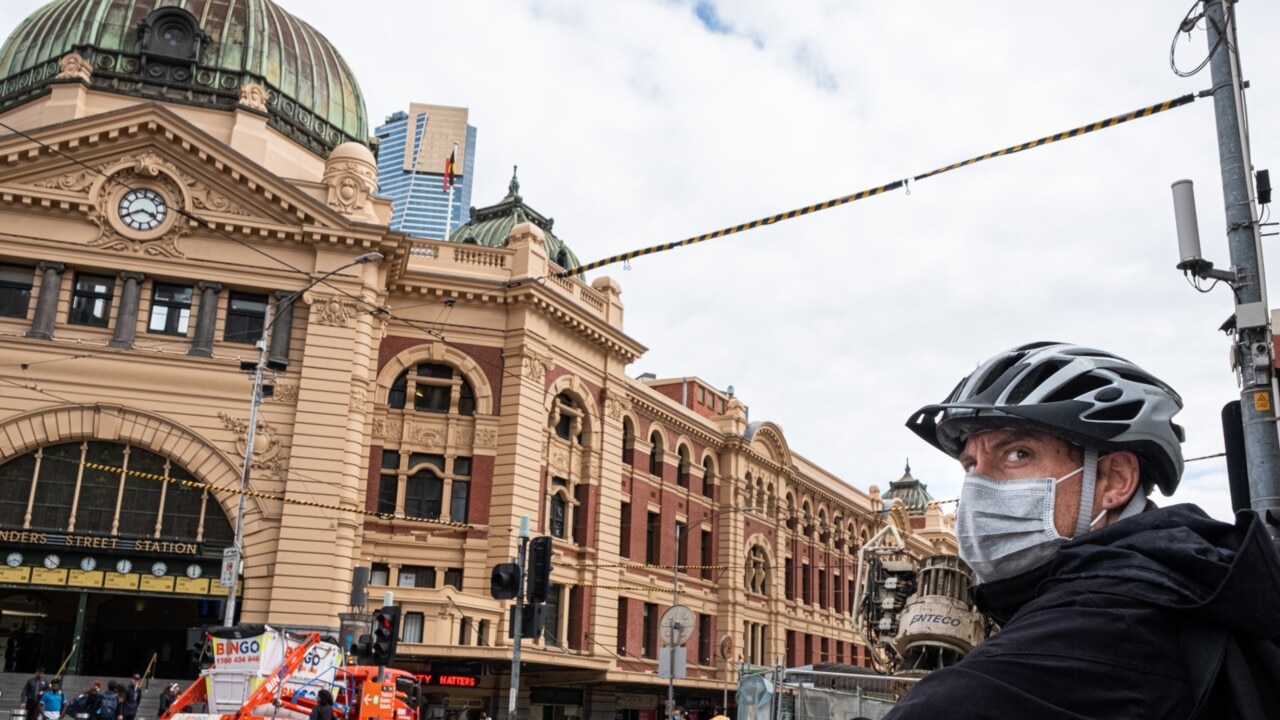
“In this update we are reconciling the impact of both our policy decisions since MYEFO and the impact of the economic hit from the coronavirus pandemic on revenue, expenditure and the budget bottom line over two years,” the Finance Minister said.
“By the time of the budget in October, we will be in a position to provide all the relevant forecasts and projections over the entire forward estimates period and over the medium term.”
Treasury expects the COVID-19 economic shock will continue to have an impact on all parts of the economy, with record falls in business investment, household consumption, the labour market and trade activity since March.
Global ratings agency Moody’s on Wednesday predicted real GDP in Australia would contract by 4.9 per cent this year, rebounding by 3.7 per cent in 2021. “We expect a material deterioration in budgetary outcomes (measured against revenue) for all states in 2020 and 2021 as a result of the pandemic,” Moody’s analysts said.
Moody’s, which said the COVID-19 disruption had cost Australia more than $90bn in lost GDP in 2020, warned that the Victorian lockdown measures would “likely drag on the overall rate of recovery” as the state accounted for a quarter of the nation’s economic growth.
In a major speech this week, Reserve Bank governor Philip Lowe endorsed record public debt and deficits during the pandemic as “entirely manageable and affordable” and flagged record low interest rates would remain in place for the foreseeable future.
Opposition Treasury spokesman Jim Chalmers said the government should be releasing “four years of numbers” instead of a two-year forecast in the budget update. “We need to know how bad the government expects this recession to get, how high unemployment will be for how long, and how much extra debt has piled up,” Mr Chalmers said.




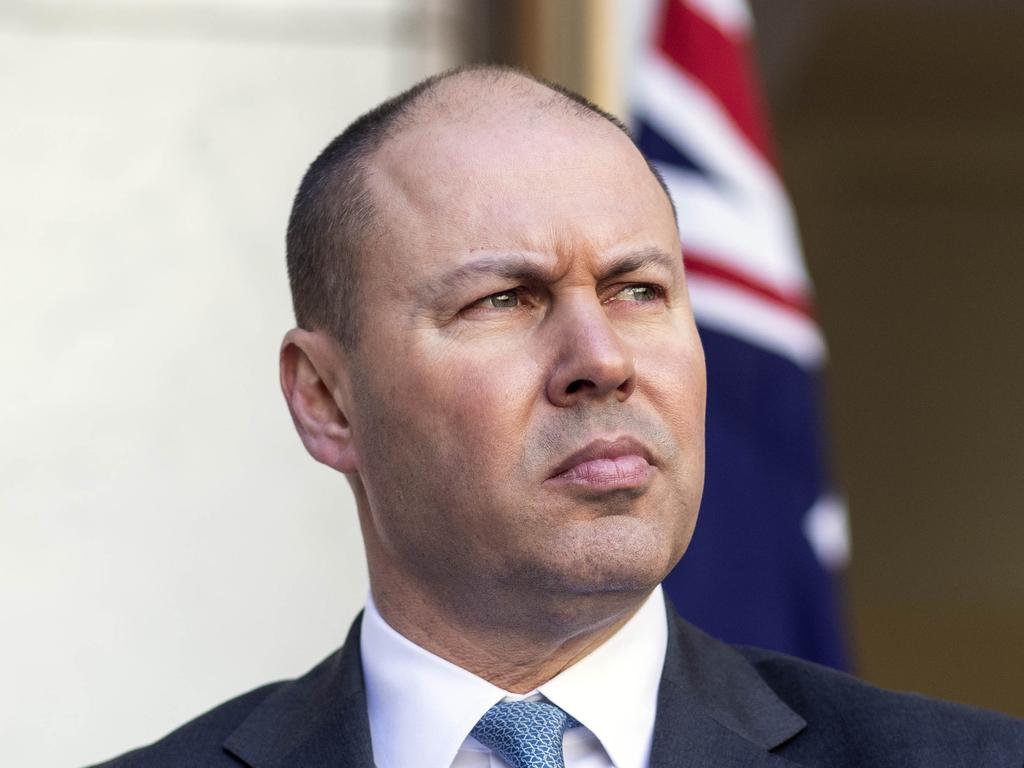
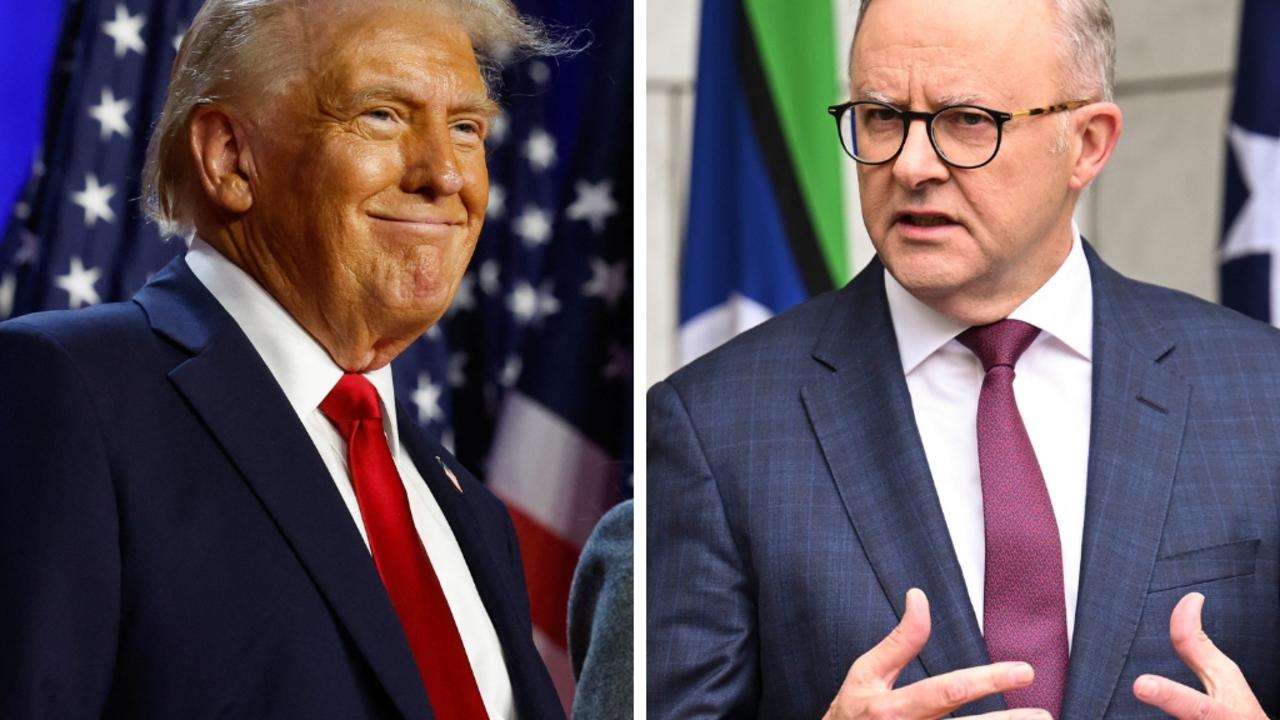
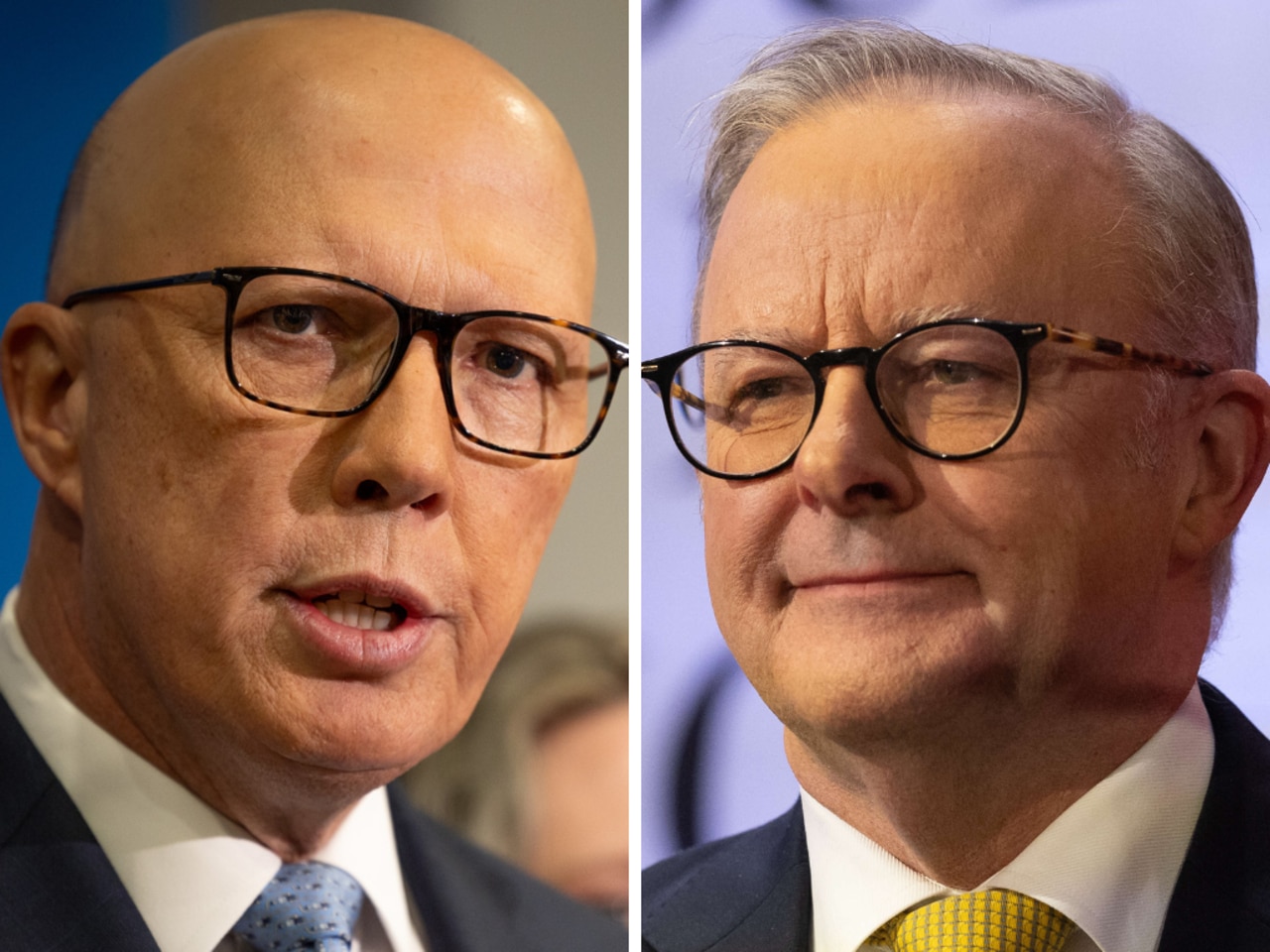
To join the conversation, please log in. Don't have an account? Register
Join the conversation, you are commenting as Logout